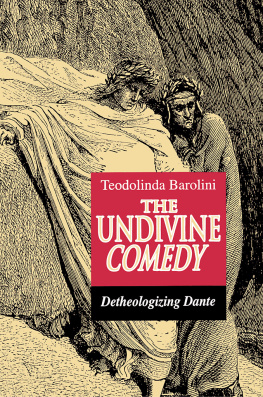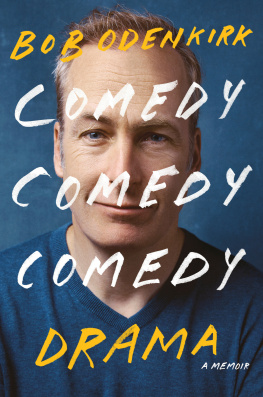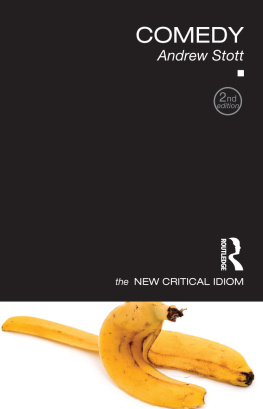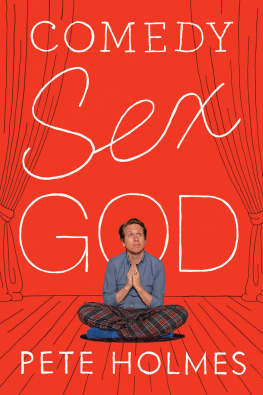Teodolinda Barolini - The Undivine Comedy
Here you can read online Teodolinda Barolini - The Undivine Comedy full text of the book (entire story) in english for free. Download pdf and epub, get meaning, cover and reviews about this ebook. year: 2021, publisher: Princeton UP, genre: Science. Description of the work, (preface) as well as reviews are available. Best literature library LitArk.com created for fans of good reading and offers a wide selection of genres:
Romance novel
Science fiction
Adventure
Detective
Science
History
Home and family
Prose
Art
Politics
Computer
Non-fiction
Religion
Business
Children
Humor
Choose a favorite category and find really read worthwhile books. Enjoy immersion in the world of imagination, feel the emotions of the characters or learn something new for yourself, make an fascinating discovery.
- Book:The Undivine Comedy
- Author:
- Publisher:Princeton UP
- Genre:
- Year:2021
- Rating:3 / 5
- Favourites:Add to favourites
- Your mark:
- 60
- 1
- 2
- 3
- 4
- 5
The Undivine Comedy: summary, description and annotation
We offer to read an annotation, description, summary or preface (depends on what the author of the book "The Undivine Comedy" wrote himself). If you haven't found the necessary information about the book — write in the comments, we will try to find it.
The Undivine Comedy — read online for free the complete book (whole text) full work
Below is the text of the book, divided by pages. System saving the place of the last page read, allows you to conveniently read the book "The Undivine Comedy" online for free, without having to search again every time where you left off. Put a bookmark, and you can go to the page where you finished reading at any time.
Font size:
Interval:
Bookmark:

THE UNDIVINE COMEDY
THE UNDIVINE COMEDY
DETHEOLOGIZING DANTE
TEODOLINDA BAROLINI
PRINCETON UNIVERSITY PRESS
PRINCETON, NEW JERSEY
Copyright 1992 by Princeton University Press
Published by Princeton University Press, 41 William Street,
Princeton, New Jersey 08540
In the United Kingdom: Princeton University Press, Oxford
All Rights Reserved
Library of Congress Cataloging-in-Publication Data
Barolini, Teodolinda, 1951
The undivine Comedy : detheologizing Dante / Teodolinda Barolini.
p. cm.
Includes bibliographical references and index.
ISBN 0-691-06953-0 (cloth)
ISBN 0-691-01528-7 (pbk.)
1. Dante Alighieri, 1265-1321. Divina commedia.
2. Dante Alighieri, 1265-1321Religion. 3. Dante Alighieri,
1265-1321Criticism and interpretationHistory. 4. Religion in literature.
I. Title.
PQ4416.B37 1992 851'.1dc20 92-11859 CIP
10 9 8 7 6 5 4 3 2 1
10 9 8 7 6 5 4 3 2 1
(pbk)
eISBN: 978-1-400-82076-4
R0
For Douglas Gardner Caverly, beloved fellow traveler
PREFACE
O NE THINKS of strange things reading the Commedia: that Dantes spires of poetic lifeterza rimabear a resemblance to modern sciences spires of biological life, DNA; that his long obsession with the new is echoed in current research on the brain, which shows that the new things that we live actually become who we are. Dante is no naturalist, but he is the ultimate realist, preoccupied with rendering realityeven surrealityin language, s che dal fatto il dir non sia diverso. It is to Erich Auerbach that we owe the profound insight that Dantes content was finally ruptured by its form, his theology imperiled by his mimetic genius. I have endeavored in what follows to show some of the paths trodden by a master of mimesis, some of the ways in which Dantes poetic adventuring is indeed, according to his own lights, Ulysseana journey di retro al sol, del mondo sanza gente.
EDITIONS AND ACKNOWLEDGMENTS
Citations of Dantes texts are from the following editions:
La Commedia secondo lantica vulgata, ed. Giorgio Petrocchi, 4 vols. (Milan: Mondadori, 1966-1967).
Vita Nuova, ed. Domenico De Robertis (Milan: Ricciardi, 1980).
Convivio, ed. Cesare Vasoli, in Dante Alighieri, Opere minori, vol. 5, tomo I, parte II, La letteratura italiana: Storia e testi (Milan: Ricciardi, 1988).
De vulgari eloquentia, ed. Pier Vincenzo Mengaldo, in Dante Alighieri, Opere minori, vol. 5, tomo II, La letteratura italiana: Storia e testi (Milan: Ricciardi, 1979).
Monarchia, ed. Bruno Nardi, in Opere minori, tomo II.
Epistole, ed. Arsenio Frugoni and Giorgio Brugnoli, in Opere minori, tomo II.
Egloge, ed. Enzo Cecchini, in Opere minori, tomo II.
Questio de aqua et terra, ed. Francesco Mazzoni, in Opere minori, tomo II.
The following abbreviations are used:
| ED | Enciclopedia Dantesca, 6 vols. (Rome: Istituto dellEnciclopedia Italiana, 1970-1978). |
| ST | Thomas Aquinas, Summa Theologiae, in the Blackfriars edition, 61 vols. (New York: McGraw-Hill; London: Eyre and Spottiswoode, 1964-1981). |
Translations are mine unless otherwise stated. All italics present both in the Italian and the English translation are mine. A substantially less evolved version of appeared in Lettere italiane 40 (1988): 3-36. Mary Refling compiled the index.
I would like also to take this opportunity to thank Joan M. Ferrante for her friendship, enthusiasm, and generosity over the by now twenty years of our Dante dialogue.
THE UNDIVINE COMEDY
Chapter 1
DETHEOLOGIZING DANTE: REALISM, RECEPTION, AND THE RESOURCES OF NARRATIVE
vellem quippe, si tunc ego essem Moysesex eadem namque
massa omnes venimus; et quid est homo, nisi quia memor es
eius?vellem ergo, si tunc ego essem quod ille, et mihi abs te
Geneseos liber scribendus adiungeretur, talem mihi eloquendi
facultatem dari et eum texendi sermonis modum...
(Augustine, Confessions)
S chegli nuovo Apollo e nuovo Apelle:
Tacete unquanco, pallide viole,
E liquidi cristalli e fiere snelle;
Edice cose, e voi dite parole
(Francesco Bemi on Michelangelo,
Capitolo a Fra Bastian dal Piombo)
I N HIS CAPITAL and underutilized Dante profeta," published in 1941, Bruno Nardi threw down a critical gauntlet and challenged us to look at the Commedia not through a glass darkly but face to face. may have limited the influence of his essay.
In this chapter I will trace, in broad outline, the history of our recent handling of what I take to be the fundamental question for all readers of Dante's poem: How are we to respond to the poet's insistence that he is telling us the truth? Logically prior to this query stands another that we cannot answer, but on which we may speculate: Did Dante himself believe in the literal truth of those things for which he claims literal truth?
In the wake of the American querelle regarding the allegory of poets versus the allegory of theologians (the Convivio's terminology for allegorical signifying presumed to be man-made and invented versus allegorical signifying presumed to be intrinsic and divine), we seem to have reached an impasse in which the question of Dante's truth claims has been effectively put to one side, begged by some of us, ignored by others, treated as settled by many. This is not to say that the issue is never raised; in our attempts to understand the Commedia's intertextuality, for instance, it is frequently touched upon. But Nardi was not engaged in avoidance; he was formulating the issue in terms that were more congenial to one who was less a literary critic than a historian and philosopher, steeped in thirteenth-century controversies wherein Franciscans, for instance, regularly impugned the truth of other Franciscans, and the charge of false prophet was not uncommon. Indeed, if we interrogate the Commedia as we have in the past interrogated the Convivio and the Epistle to Cangrande, we will find that Nardi's way of framing the issue of the poet's truth claims is far from inappropriate.
In his later Il punto SullEpistola a Cangrande, Nardi moves from stating his case regarding Dantes claims to examining how the poets claims have traditionally been evaded. and culminating in the Dominican ban of 1335, he points out that all of Dantes early commentators (among whom Nardi places the author of the expository part of the Epistle, a point to which we shall return) feel obliged to protect their poet from the charge of heresy. Their defense is invariably based on distinguishing the poeta from the theologus, the literal sense contrived by the poet from the allegorical sense employed by the moralist: E tutti lo mettono al riparo da questa accusa nello stesso modo, cio distinguendo quello che Dante scrive come poeta (poetizans) da quello che Dante pensa come teologo nullius dogmatis expers, ossia, in sostanza, fra il senso letterale, intenzionalmente svalutato, e il senso allegorico, il solo vero, cio quello che si cela sotto il velo delle parole fittizie, sotto il velame de li versi strani, come dice Dante stesso in uno dei luoghi del poema veramente allegorici (Everyone shelters him from this accusation in the same way, distinguishing what Dante writes as a poet from what Dante thinks as a theologian, or rather, in substance, between the literal sense, intentionally devalued, and the allegorical sense, the only true sense, the one that is hidden under the veil of fictitious words, under the veil of the strange verses, as Dante himself says in one of the truly allegorical moments of his poem [27]). The early commentators thus deflected attention from the literal sense and its preposterous claims by intentionally devaluing it, equating it with the allegedly fictitious imaginings of the poet. This stratified division of the texts authorial persona along allegorical lines, with the moralist responsible for the allegorical truth that is hidden under the
Font size:
Interval:
Bookmark:
Similar books «The Undivine Comedy»
Look at similar books to The Undivine Comedy. We have selected literature similar in name and meaning in the hope of providing readers with more options to find new, interesting, not yet read works.
Discussion, reviews of the book The Undivine Comedy and just readers' own opinions. Leave your comments, write what you think about the work, its meaning or the main characters. Specify what exactly you liked and what you didn't like, and why you think so.








